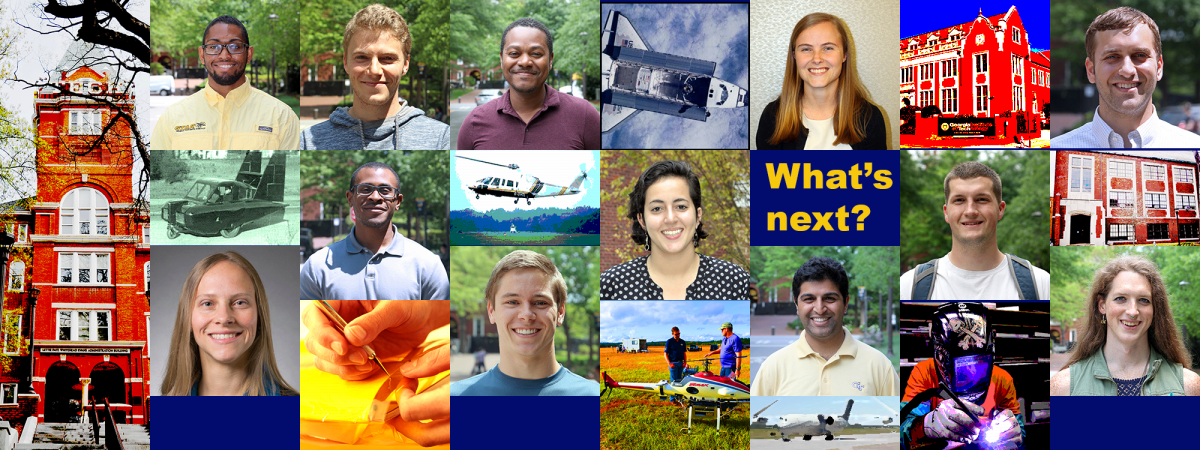
Before they scatter to labs, think tanks, and industries unknown, some members of the Class of 2017 gave us a sneak peak of their next adventure.
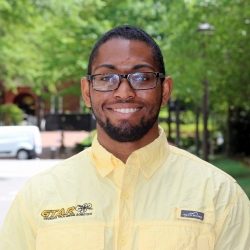 |
|
Gerard W. Bennett |
Gerard W. Bennett, B.S. AE, '17
What is your next adventure?
After graduation, I will start a fellowship with Sandia National Labs in New Mexico with their missile navigation control group. Then, in the fall, I’ll be coming back to Georgia Tech to earn my MS Professor Eric Johnson. The Lab will be paying for to get my MS and I’ll be working there during the summers while I pursue my degree.
Did you have any previous co-op, internship, or research experience in this area?
I interned for two summers at Sandia and I was able to learn a lot and build connections that really helped me. When I first went there, I wasn’t that far into the AE curriculum, so I didn’t know if I’d be interested in controls, systems engineering, in propulsion…really, anything. So I used the internship to expose myself to as many different jobs as possible. That’s when controls became really interesting to me. My interest was confirmed when I went back and took Dr. Haddad’s controls course. It combined everything I wanted to do in AE. It showed me that you combine everything you are doing into your control system. Also, for the last three semesters, I have been working in Dr. Johnson’s UAV Research Facility, focusing on guidance algorithms that will allow you to pick up and deliver packages.
What about your next adventure are you most looking forward to?
The I am most excited about delving deeper into the details of control theory. As an undergrad, you really just scratch the surface enough to appreciate the depth that’s possible. In grad school you get to go through all of the derivations and build your knowledge from the ground up. At Sandia, I’ll be able to take my design work and see it apply to the field. That means a lot to me, because we’ll be working on projects that are integral to national security.
How did your educational experience at Georgia Tech help you to achieve your goal?
I would have to say that it all starts with the rigor of the school. We havea reputation that we deserve. I came in as a freshman expecting to work really hard, and I did. And I know now that I wouldn’t have learned as much if the school hadn’t pushed me so hard.All of the professors have done a great job of making sure that we don’t do the bare minimum. They expect us to go farther, to have a true grasp of the impact of what we are learning.
What advice would you give to an underclassman who would like to follow the same path?
I would say get involved as much as possible, especially with research and a related club, because having hands-on experience really helps you to see what you like and what you have to work harder to master. At Sandia and in my research, I saw what other people were doingon a daily basis and I had access to research papers and to people who were delving into things. It all built up my interest beyond what it would be if I’d just stuck to theoretical learning.
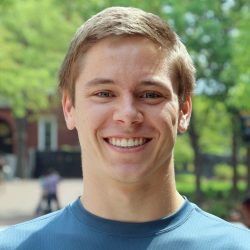 |
| Daniel A. Wise |
Daniel A. Wise, B.S. AE '17
What’s your next adventure?
Immediately after graduation I am going to [naval] officer candidate school in Rhode Island. After 12 weeks there I’ll go to flight school in Pennsacola where I’ll learn the basics of being a Navy pilot like instrumentation, military combat, surveillance. That’s about a year. After that, I have to qualify for advanced training, probably in Corpus Christi, Texas. That’s where I will be assigned to jets, helicopters, or big wing. Each has its own perks, but I’m hoping to be assigned to jet training – the most demanding and most dangerous of the three, because my dream is to fly an F-18 Super Hornet.
Did you have any previous co-op, internship, or research experience in this area?
I did an internship as a manufacturing engineer at Northrop Grumman in Saint Augustine, Florida. I also did four rotations with Gulfstream – in human factors engineering, systems test design, performance engineering, and flight test engineering. The flight test engineering rotation sealed the deal. That’s where I met dozens of Naval and Air Force guys – the crème de la crème of pilots – and I was able to pick their brains about becoming an experimental test pilot, my dream. Their passion and all around knowledge of the field floored me. They were committed to safety, but they also had a practical view about the overall operation. Instead of working every mission out to 12 decimal spaces, they were thinking about how to complete the mission.
What about your next adventure are you most looking forward to?
I chased down a lot of ‘no’s’ before I got to this ‘yes.’ I loved learning straight engineering and it’s given me a great foundation. Now I’m ready to embark on one of the greatest challenges in naval aviation: learning how to land on a ship in the middle of the ocean. The challenge is great, but the camaraderie is greater. I’ll be a part of the U.S. Navy, working together to protect democracy and justice around the world. There couldn’t be anything more fulfilling than that. And, intellectually, I’ll have to be ready for constant change and constant challenges. Every year, I’ll be in a different place, working on different problems.
How did your educational experience at Georgia Tech help you to achieve your goal?
The default route would have been to become an engineer after I graduated. No one in my family is in the military and the training itinerary in front of me is long and difficult. But Georgia Tech is full of leaders in different fields who have broken away from the default route. I listened to that. The only rule they followed is work hard and be certain about your dreams. I learned how to work hard in the aerospace engineering program. I learned how to solve difficult problems, how to handle immense amount of stress, how to carry a heavy load and still do well. The engineering knowledge I gained will be a big help throughout my naval aviation training. The perspective I gained through co-ops confirmed the rest.
What advice would you give to an underclassman who would like to follow the same path?
Try everything. Get involved in things you think you might like – even if it’s just for a semester. You’ll learn more about who you are and what you like. There may not be another time in your life when you’ll be able to get outside your comfort zone to try something different. And, intellectually, no school is going to push you more than Tech. You’ll be challenged to give it your best. For me, all of these things helped me to see that I had to follow my heart, that I had to go into the Navy. I would not change a thing, because I feel entirely prepared to be a success in the Navy.
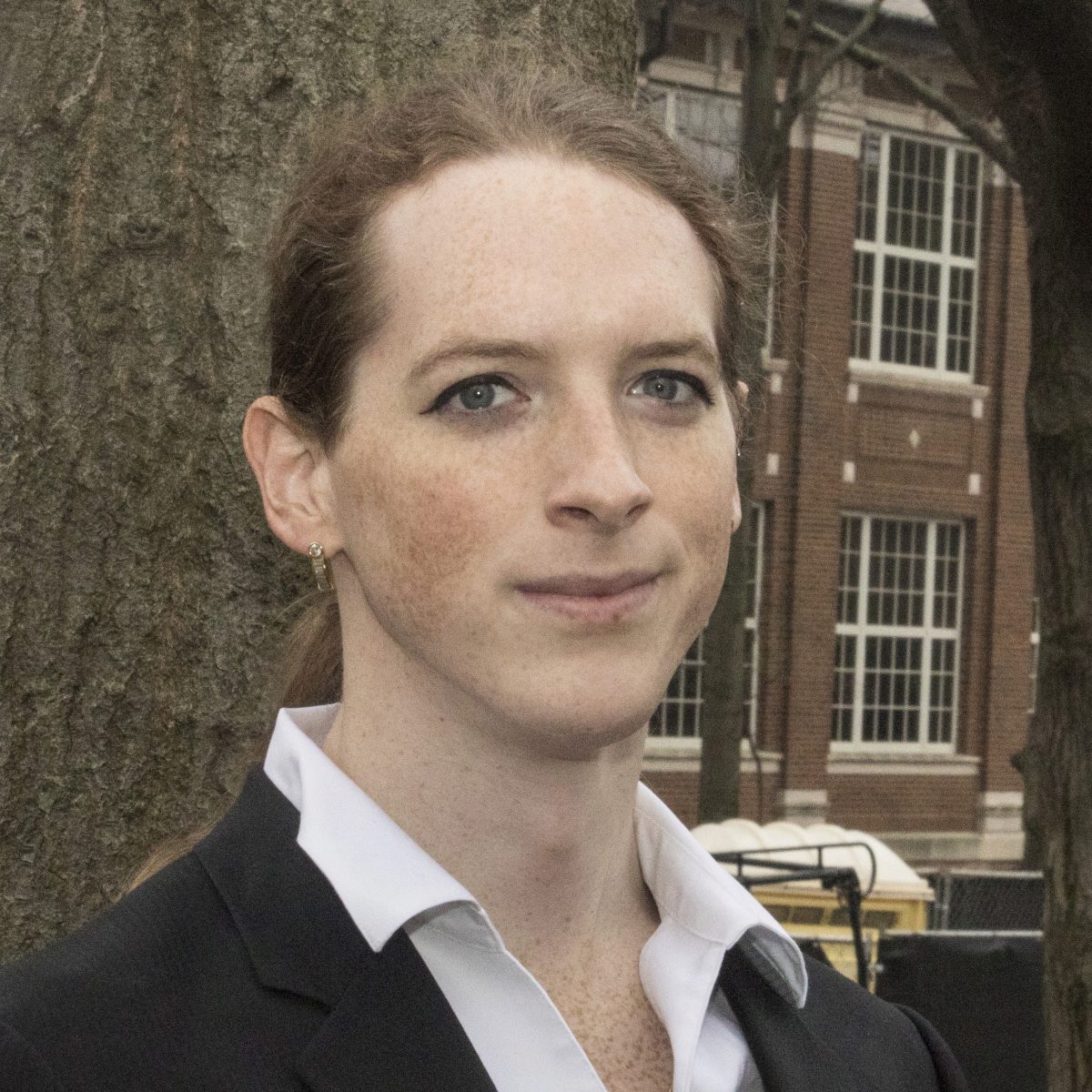 |
| Angelina Walters |
Angelina Walters, B.S. AE '17
What is your next adventure?
After I graduate, I’m going to take some time off, to re-establish some balance in my life. I find the rigorous environment very attractive, but when you are always ‘go, go, go’ the way we are at Tech, you miss the forest for the trees. I’ve worked in engineering before and, long term, I see myself working in it again – this time, on autonomous spacecraft, like the New Horizons that flew past Pluto.
Did you have any previous co-op, internship, or research experience in this area?
After my first time at Georgia Tech, I got an internship at Case New Holland Design. That internship itself gave me the confidence I’d lacked before and would need to finish my degree. I saw that I could enter a work environment that was completely new to me and I could use what I knew to succeed. I also did research on aircraft flight health under the direction of Prof. Clarke. We developed a distribution system for sensors and data analysis tools that would help us collect real-time data on the plane’s health. For instance, if there’s a bizarre oscillation in the wing that you can’t directly observe, you want know about it so you can fix it before it poses a problem. The sensors we worked on would allow you to do that.
What about your next adventure are you most looking forward to?
What excites me most about graduation is that I have finally succeeded at Tech. I first enrolled in college at 15 – it was a technical community college. That helped me to get into Tech but it didn’t prepare me for the rigors of Tech. So I flunked out. I wasn’t the hot shot I’d thought I was. That brought me down a lot, and made me wonder, seriously, if graduation day would ever happen. The fact that I’m graduating, now, is like a new lease on life.
How did your educational experience at Georgia Tech help you to achieve your goal?
Georgia Tech was where I learned about success – and failure. Both have been valuable. When I left here, in 2011, it was because I’d flunked out. That was horrible. When I re-enrolled in 2015, I earned a 4.0 my first semester. Academically, I’ve held my own ever since, but I had to rethink my identity as a student. I got a lot of help from GT2100 – a class where they helped me to identify my academic problem areas and strategize ways to succeed. I also got some great support from the LGBTQIA Resource Center, which was started at Tech after my first time around. I began to see that the failure I’d experienced had torn me down so far that the only thing I could do was rebuild. I recreated myself.
What advice would you give to an underclassman who would like to follow the same path?
First and foremost, I think it’s really important to remember that you are not defined as a person by the grades you earn. After I flunked out, I carried a ton of shame. I thought I was the dumb kid, the one who wasn’t worthy of succeeding. When I came back, I realized that your performance in a particular class is not the only thing that matters. You have to invest in the opportunities that exist outside the classroom – go to office hours, get involved in research, get involved in a design-build-fly competition. You need to engage with professionals and teachers outside the classroom. The relationships I developed with professors and with my classmates when I came back were what defined my success.
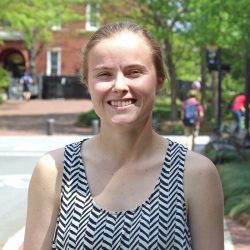 |
| Madison Luther |
Madison Luther, B.S. AE '17
What is your next adventure?
A week after graduation, I am getting married. Then we are moving to Orlando where I will start a job with Northrop Grumman.
Did you have any previous co-op, internship, or research experience in this area?
I did several rotations. I did research in acoustics under the direction of [research engineer] David Scarborough in the Combustion Lab. I interned at Gulfstream as a simulation modeling engineer and I worked as a systems integration engineer in lab operations at Northrop Grumman. For the last year I’ve done research with Dr. Ahuja in the Aerospace Transportation Advanced Systems Lab.
What about your next adventure are you most looking forward to?
I’m really excited to finally be in the aerospace industry so I can actually work as an engineer. I’ve wanted to be an engineer for as long as I can remember. My father is a [corporate] airplane pilot, so I grew up around flying. And I loved it. Sometimes, when there was an open seat in the cockpit, he’d check me out of school so I could fly with him.
How did your educational experience at Georgia Tech help you to achieve your goal?
Definitely, the value of the curriculum and the research opportunities is unmatched. The research I was able to do seems small, but it contributed to a larger project that matters. And just having the experience doing research gave me a leg up. I did some research with Dr. Clarke that was very theoretical, so it was hard for me to see where it would ultimately be applied, but the confidence, the leadership I gained was great. I brought it to work with my peers, when we worked on projects. I was able to make design decisions with them, have confidence in my work, and back it up because I’ve seen it modeled by Dr. Clarke and Dr. Ahuja.
What advice would you give to an underclassman who would like to follow the same path?
When you come to Tech, know that you deserve to be here. They didn’t make a mistake. Everyone gets the first wave of tests back and they are not the same as in high school. It’s terrifying. I was terrified because I’d never gotten a ‘C’ before. But that’s part of the process. From there, you learn to work really hard to see learning as more than a grade. And you work really hard even in subjects you hate because it disciplines you. What also worked for me was taking more classes [not fewer] because it forced me to stay on top of things and to push myself farther than I would have.
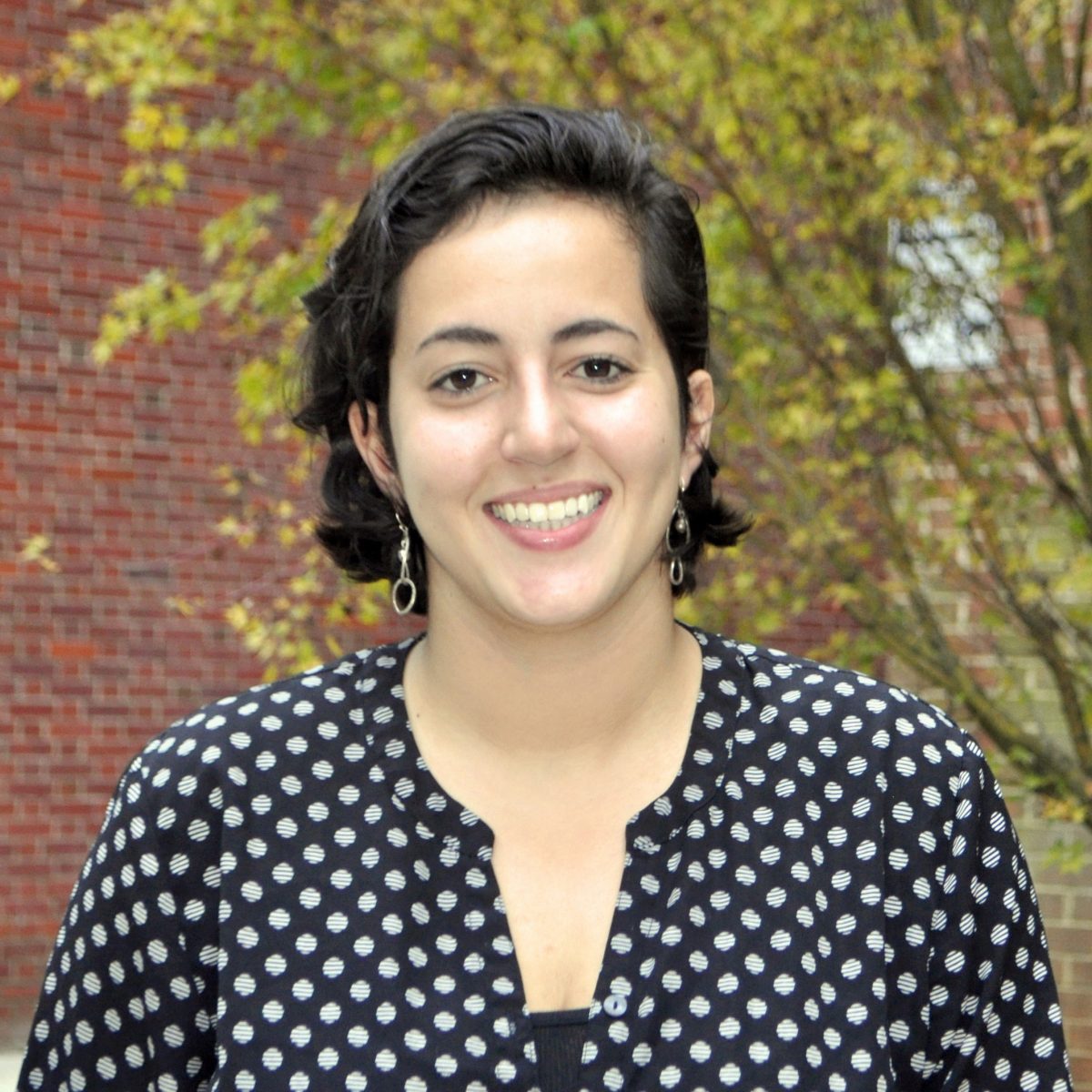 |
| Christine Gebara |
Christine Gebara, B.S. AE '17
What is your next adventure?
I’ll be starting as a mechanical engineer working in large deployable space structures at JPL [Jet Propulsion Laboratory] in September. Over the summer I’m going to hike the John Muir Trail – 180 miles – for three weeks. Hopefully, I’ll be able to start my master’s through the Distance Learning program sometime next year. I’ve already earned nine credits toward my master’s degree.
Did you have any previous co-op, internship, or research experience in this area?
My first internship – in 2014 - was at Johnson Space Center where I was an advanced counter measures intern. That’s a fancy term that means I designed prototype exercise devices for use in space. The problem they are facing is that regular equipment weighs a lot takes up a lot of room. To save on fuel and space, they need to order-of-magnitude smaller. I did two back-to-back rotations [7 months] at JPL, which was the best decision I ever made. That’s when I worked on Starshade – a large deployable sunflower that flies with a telescope that allows you to image earth-like planets and other solar systems directly. I went back there, again, last summer.
Research-wise, I got a PURA grant to work with Dr. Rimoli on Tensegrity. I also worked with Dr. Spencer as the project manager for the Prox-1 [cubesat] mission, and I presented a paper at the 2016 AIAA small sat conference. My paper was chosen for publication as a part of the proceedings of that conference.
What about your next adventure are you most looking forward to?
I’m really excited to do a deep dive into big projects – contributing to what’s out there while I continue to explore. At Tech, as a student, you get spread out across different projects and classes, so it’s hard to get depth. At JPL, I want to become a cognizant engineer for a project, which means I would be responsible for making a certain part of a system workable. To do that, I will need to get trained in JPL’s procedures and practices. I can hardly wait.
How did your educational experience at Georgia Tech help you to achieve your goal?
Tech gave me every opportunity I could ever have wanted to get ahead. And there were always people here to guide me along the path once I chose it.
For instance, I couldn’t find an internship freshman year, so I signed up to do a semester at GT-Lorraine and I got ahead on my classes. When I had questions about how my career should go, I had a long talk with Dr. Spencer. Dr. Feigh talked to me about how to work and travel. I also talked to Dr. Pritchett, Dr. Rimoli, and my advisor, Dr. Walker. There was always someone willing to help me.
What advice would you give to an underclassman who would like to follow the same path?
I didn’t realize this until late in my college career, but it’s worth sharing: Don’t assume something is impossible until you ask about it. At Tech, I got a job at OIT [Office of Information Technology] and I didn’t know how to code. They hired me because I was interested and I seemed smart enough to learn. With the paper I published: that would never have happened unless I’d asked about it. And at JPL, the majority of the work I get done when I ask for advice from my colleagues. That’s how you learn.
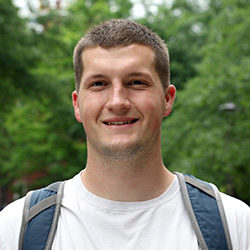 |
| Mitchell E. Hotop |
Mitchell E. Hotop, B.S. AE '17
What is your next adventure?
Right after graduation, some friends and I will be doing a charity car rally, driving from London to Mongolia to raise money for health care outreach and educational programs for students. After that, I’ve got a choice: either start grad school at the University of Colorado at Boulder where I’ll be studying remote sensing instrumentation or I'll begin working at Ball Aerospace where I’ll work as an integration and testing engineer.
As far as the first part goes: the road trip takes about a month, but we’ve built in a month-and-a-half just in case something goes wrong. Some friends had done a similar fund raiser before, but we decided to do it a little differently. We are investing in a vehicle that will be able to carry us all for the trip, but will also be donated to the cause at the end. So, instead of paying to ship it home, we’ll be giving it to a local organization to use for health care outreach.
Did you have any previous co-op, internship, or research experience in this area?
For a little over a year, I have worked at GTRI in the electrical systems lab readying proposals for different DOD-involved projects. I also co-opped at Lockheed Martin, where I worked on the C-130—going to the production floors so we could see what we had to do to create an effective trouble-shooting system for aircraft maintenance. If we can more efficiently fix and re-integrate them into the aircraft, we can save time and money. Walking around the plane, talking to the mechanics, we were able to save a lot more than I had ever imagined.
What about your next adventure are you most looking forward to?
All my life, I’ve lived within a 30-mile radius of my home [Lawrenceville]. Everything I’m about to do will bring me into new environments where I’ll meet new people and take on new challenges. If I go to Ball [Aerospace] it will be cool because a lot of the stuff I’ll be doing will be stuff I’ve grown to love at Georgia Tech – like mission architecture. If I go to CU, I’ll increase what I know about the science that underlies aerospace engineering. That will help me to be a more effective aerospace engineer. I’ve always enjoyed adventures where I’ll be tested and that’s what I anticipate with my near-term plans. This may be the last time in my life where I’ll be able to go on this sort of adventure without other responsibilities.
How did your educational experience at Georgia Tech help you to achieve your goal?
The biggest thing is that Georgia Tech is a very demanding school. It pushes you to develop abilities you didn’t know you had. I always had to be ready to do the best I was capable of - It didn’t matter if it was early morning or late at night. Preparedness was no accident. The other thing is the faculty mentors I had were very accessible. I could go to them with questions I was having and they had answers that really helped. The faculty know you in class and they also know the real word so they are great to go to for wisdom.
What advice would you give to an underclassman who would like to follow the same path?
A lot of things are possible at Tech if you put in the work. I’m not extraordinarily smart, so it wouldn’t be impossible to do what I’ve done or to do better if you make use of the resources that are available. If you go into a challenge committed to doing your best, then even if you don’t do well, you will do better than if you had just given up. That’s a net gain.
The other thing I would say is to make all of the connections you can – in your classes, on your internships, in your interviews. I feel like I know everyone in my classes and it feels good to be with people who know me, too. When I went to job fairs, I’d always come back and email the people I’d met. People appreciate the follow-up.
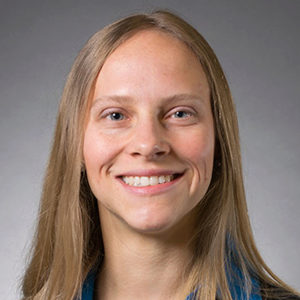 |
| Jacquelyn Banas |
Jacquelyn Banas, M.S. AE '17
What is your next adventure?
My goal is to go to Germany, and I have an offer to work with an aerospace consulting group there. They work with start-ups. If all of the paperwork goes through, I’ll begin in July.
Did you have any previous co-op, internship, or research experience in this area?
I earned my bachelor’s degree from Georgia Tech aerospace, so I’ve been around the ASDL one way or another since 2004. That’s given me a lot of time to explore, and Geogia Tech School of Aerospace Engineering has a lot to offer. It’s really a nerd paradise in terms of finding projects that will engage you. I was involved with three design competitions while I was here as an undergraduate – DBF, AIAA, and my senior design [rotorcraft] project. Also as an undergraduate, I got a PURA grant that I used to build am engine model for a large turbo jet. It was a physics-based engineering model. I also worked at Sikorsky as a flight test engineer. As a graduate student, I was involved in at least four projects: developing a higher fidelity model for a jet engine with Boeing; a Grand Challenge that used Java simulation to develop a model that would coordinate UAVs in a swarm (I presented that at a rotorcraft conference in Europe); a STEM outreach tutorial website; and an FAA big data project where we were developing methods for filtering and identifying interesting data from aircraft.
What about your next adventure are you most looking forward to?
I’m really looking forward to living in Germany and working around so many start-ups that are focusing on autonomy and renewable energy – two themes that really intrigue me. I also like the way Germany is consciously trying to improve their cities by investing in technologies that will make lives better and lessen the impact on the earth.
How did your educational experience at Georgia Tech help you to achieve your goal?
I don’t think other schools would give undergraduates as many opportunities as Georgia Tech does. As an undergraduate researcher, I was made to feel like a collaborator on their team. That put me in the right place to pursue research.
The other thing about Georgia Tech is that the labs and the faculty are really well-connected to what’s going on in the field. And it’s not a shallow connection. There are VP-level connections on a lot of projects, because industry has come to respect what ASDL is doing. Part of that is our alumni base, too. The School’s alums make an effort to stay connected with the school and the labs because they know that they can depend on AE for strong employees and solid research. It’s almost like a family.
What advice would you give to an underclassman who would like to follow the same path?
Look for projects that are a little outside your specific area. Pretend that’s a requirement, even, because it will give you a wider view of the field. I’d also say: study abroad because in aerospace it’s important to be able to work – sometimes remotely – with people from other cultures. You want to feel comfortable with that. Now I’m going to Germany. Another thing: don’t feel like you have to complete your undergraduate program in four years. It’s better to graduate with a higher GPA and some co-op experience than to do it quickly. And, lastly: as much as you try different things, try to establish a theme in your degree – an area of aerospace engineering where you’re an expert. When you go for interviews, that’s going to help you make your case.
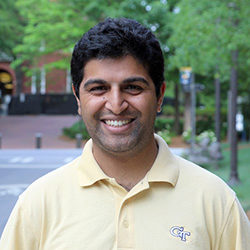 |
| Somil Shah |
Somil Shah, M.S. AE '17
What is your next adventure?
After graduation, I will be moving up to New Jersey to work in the FAA Technical Center in the Aviation Research Division. I will be working on system safety and aviation research. Some of what I’ll do is evaluate NextGen concepts.
Did you have any previous co-op, internship, or research experience in this area?
I interned one semester as an undergraduate as a propulsion engineer at Delta in their maintenance repair and operations (MRO) division. I hadn’t taken thermos yet, but I was able to work on one part of the engine, looking for ways to change its maintenance so there would be fewer failures. I saw that a lot of real-life work isn’t about the equations you learn in a textbook, but about your ability to break down problems. The whole experience showed me that I wanted to focus on material that would allow me to do higher-level thinking. It convinced me I should go to graduate school. As an undergrad I also did research on the space power grid with Dr. Komerath, and some more work with the FAA through ASDL. Dr. Sankar let me work with him on a CFD [computational fluid dynamics] project because I wanted to learn CFD. In grad school, I’ve worked on two main research projects: generating neural network models for NASA’s Environmentally Responsible Aviation project and formulating a safety assessment process for N+3 vehicles – that’s NASA’s NextGen vehicles. My job was to take two processes and put them in a web-based application that users could access online.
What about your next adventure are you most looking forward to?
Outside of being at Tech for the last six years, I’ve lived in New Hampshire my whole life, so I’m looking forward to moving to New Jersey. And I’m really looking forward to having my nights free. The big thing is, though, I’ll finally be able to make a unique contribution, rather than a class assignment. At ASDL, I learned new design methods – methods that were designed in the last five years. I feel like things I did at Tech will allow me to have an impact on the field.
How did your educational experience at Georgia Tech help you to achieve your goal?
The research curriculum – especially with design. People come here from all over the world to get what we have, and they don’t know the half of it. I feel that Georgia Tech gave me the skills that are valued by industry, especially with teamwork. We do a lot of work on teams, which is important in the workplace. And you can’t forget networking. At Georgia Tech, you meet a lot of sponsors who are running the industry right now. You know that you and your classmates could be running it tomorrow.
What advice would you give to an underclassman who would like to follow the same path?
Keep your mind open. What you think you want to do when you come to Tech might not be the thing that really excites you when you know enough. As an undergrad, after I took aerodynamic analysis, I started talking to professors about my interest in design. They started telling me about the multidisciplinary field of systems optimization, which was fascinating. And that’s where I began to specialize. The other thing is, there are still a lot of [knowledge/research] gaps in the [aerospace engineering] field, so think about how you can fill them. I’m talking about drones, cybersecurity, artificial intelligence. If you work hard, go to class, and keep your mind open, Tech can help you become a part of the future of aerospace. And if you look at it that way, you’ll make sure that you network with your peers – at Tech and at other top tier engineering schools – because we will be the ones ready to inherit leadership roles or become the hiring managers in the next five to 10 years.
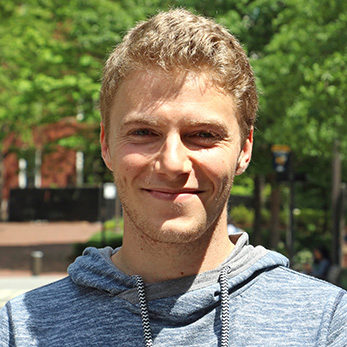 |
|
Marin C. Butori |
Marin C. Butori, M.S. AE '17
Right after graduation, I will go to [home] to France for two months to visit friends and my family. Then, I will move to New York [City] to begin a consulting position with Price Waterhouse Coopers. I’ll be helping clients deal with technology issues in their companies.
Did you have any previous co-op, internship, or research experience in this area?
I did an internship last fall with PWC and it worked out well. Price Waterhouse Coopers recruits engineers because they are analytical problem solvers. They can put problems into equations and break things down to system and subsystem levels for analysis. I have an undergraduate degree in engineering, and they thought the MS degree in aerospace from Tech was a real plus. At Tech, I did research with Prof. Marilyn Smith on aerodynamism, using reduced order modeling to focus on the interaction between rotorcraft and tethered loads.
What about your next adventure are you most looking forward to?
I studied engineering because I’ve always been good at science and I liked the logic of engineering. At PWC, I am hoping I will find something else I will feel passionate about. I know I won’t be doing IT consulting for the rest of my life, but, right now, it will really open doors. After studying engineering, I realized that I’m not built to be an engineer. There’s too much coding. But I did learn that I love the aerospace industry, and so I’m hoping I will be able to find a way back to it, perhaps through management consulting.
How did your educational experience at Georgia Tech help you to achieve your goal?
First of all, I’ve always thought aerospace engineering is the most challenging area of engineering, with lots of applications that won’t be going away any time soon. I really got that confirmed here at Georgia Tech. My work with Dr. Smith was the first real work experience I’d had in engineering and it taught me a lot. With code, you might spend three days on three lines of code. And it seems like a lot of work for you, but when you have to show your work to Dr. Smith and prove you’ve been really working hard, it doesn’t look so good. Dr. Smith helped me to break things down to smaller problems, solutions, and results. This will definitely help me with consulting clients.
What advice would you give to an underclassman who would like to follow the same path?
Give yourself 100 percent to research. It’s worth it. It’s why you come to Georgia Tech. You will take away from your degree what you contributed to it. And if you are an international student, it’s important to realize that you will be working on a special research problem for two semesters, not one, and you will be expected to draw unique conclusions. So be prepared.
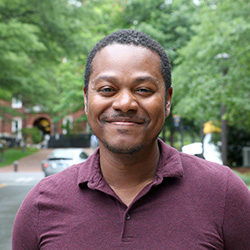 |
| Brandon J. Johnson |
Brandon J. Johnson, Ph.D. AE '17
What is your next adventure?
I have already fit in some traveling. I just got back from a trip to Rome, Barcelona, Madrid. After graduation, I will start a job with the Boston Consulting Group, where I will be focusing on management consulting with aerospace clients. It’s perfect for me because my long-term plan is to get involved in leadership and entrepreneurial goals. It’s a great time to be a consultant, too, because I am young and don’t have kids, so I can afford to travel and learn new things.
Did you have any previous co-op, internship, or research experience in this area?
I did two internships with Boeing while I was at Georgia Tech – one as a structural engineer in missile defense and the other, in Seattle, doing conceptual design for new efforts. I saw people who had deep technical knowledge, but I also got to meet people in leadership. Both of these internships were critical to me because I met executives and developed mentorship relationships that helped me to see what it takes to be a leader. That helped me to focus more on business, not just the technical aspects of the internship.
What about your next adventure are you most looking forward to?
To me, this a once-in-a-lifetime chance to learn a lot about business in a fairly short period of time. I’m particularly interested in gaining the business skills, the leadership skills, and the entrepreneurship skills that will be a part of my long-term plan. As a consultant, I can get a broad perspective on how those skills will apply to my career.
How did your educational experience at Georgia Tech help you to achieve your goal?
I think Dr. Mavris’s lab is unique even among the schools where I earned my master’s and undergraduate degrees [Stanford and University of Maryland, respectively]. He always encouraged us to look at our work from a number of angles – the business angle as well as the technical part. It shaped my career aspirations. I came to Tech with an entrepreneurial perspective, and he encouraged me to look at the non-engineering aspects, as well as to pay attention to the technical details.
What advice would you give to an underclassman who would like to follow the same path?
Don’t be afraid to look outside the [aerospace engineering] box. There are a lot of resources here at Tech that will allow you to develop yourself as an engineer. I tried, but I couldn’t do everything. Sometimes I just breathed in the air, the entrepreneurial culture of the School. Don’t get caught up in the graduate school experience, where all that you do is go to classes and do your research. I got involved in NSBE [the National Society of Black Engineers] and it helped me to branch out. Get involved in entrepreneurial competitions where they give you a chance to develop your ideas into commercial concepts. Students who are attracted to this School have the mindset of taking things to the next level. Take advantage of that.
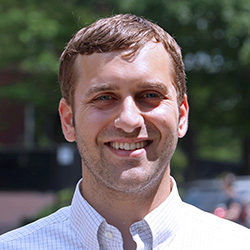 |
| Henry D. Schwartz |
Henry D. Schwartz, Ph.D. AE '17
What is your next adventure?
Immediately after graduation, my wife and I will take some time off to hike in Zion National Park, maybe a little bit of Bryce. Then I will come back to Tech to work with a Dr. Mavris as a research engineer II in the Aerospace Systems Design Lab (ASDL).
Did you have any previous co-op, internship, or research experience in this area?
Before I came to graduate school, I worked for a year at L3 Communications, where [among other things] I oversaw the dimensioning and tolerencing of parts. It was a great job, but I could tell that with only a BS, I would never get to make decisions or impact design any time soon. I was in an ocean of cubicles. In graduate school, I was able to get a NSRP [NASA Space Research Program grant] so I did three rotations at NASA Glenn. I’ve worked on the Environmentally Responsible Aviation (ERA) project and also on the Open Rotor Engine Propulsion Concept.
What about your next adventure are you most looking forward to?
The best part is that I have that weight off my chest, the weight of presenting and defending this massive concept – your dissertation. That actually went better than I thought it would, but, really, by the time you defend, you are pretty well prepared. You’ve already had a lot of challenges thrown at you by your advisor. You know what they are looking for. The other thing about finishing is that it’s like a new beginning. When you are working on your Ph.D., there are a lot of lessons you learn along the way that make you wish you could start over, to do things more efficiently. But you can’t do that. So you keep going. Now, I can start my research with all of those lessons in mind, to do it right. And I will be in charge of some research projects, too, so I’ll be able to work with students, to help them learn the process.
How did your educational experience at Georgia Tech help you to achieve your goal?
I think all of the research opportunities at ASDL are very unique. The lab is so large and has so many projects going on, that you can see the breadth and depth of what aerospace research is all about. You see projects that touch on military applications, on propulsion, on civil aviation, on managerial issues and technical issues. And you work directly with people who are making an impact in the field. I worked with some very high-ranking people at NASA. I presented papers before colleagues in Korea, in Russia. Those are opportunities that you just don’t get everywhere.
What advice would you give to an underclassman who would like to follow the same path?
In graduate school you don’t have someone sitting there telling you exactly what you should be doing next, so you have set a number of short-term, achievable goals for yourself. Otherwise, it’s very easy to let the overall goal weigh you down. So you need to set up smaller goals – on a weekly, monthly, and semester basis – so that don’t lose momentum. For me, I struggled for awhile going down the rabbit hole of researching one thing for too long and losing my focus. I learned to give myself deadlines for things like getting a section of my proposal done or doing a literature search. I’m a curious person – which is why I like engineering – but I had discipline myself.
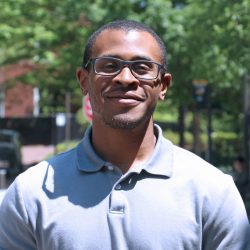 |
| Johnny L. Worthy, III |
Johnny L. Worthy, III, Ph.D. AE '17
What is your next adventure?
I am going to join the technical staff of the Space Systems Group at MIT’s Lincoln Labs in Lexington, Massachusetts. It’s more or less a continuation of what I’ve been doing here at Tech, focusing on space situational awareness. We’ll be developing techniques for identifying objects when you have a very short measurements.
Did you have any previous co-op, internship, or research experience in this area?
I really got into research as an undergraduate when I started working on a nano composite project with Dr. Pucha (ME). That’s when I realized that research can really give you more options in any subject area. After working with him for three years, I realized that research is less about being told what to learn and more about learning from what you decide to do. As a GEM scholar, I interned two summers at Lincoln Labs – first, developing conceptual designs for ground surveillance, and, then, working on satellite intercept problems. When I got an NSF award and started working with Dr. [Marcus] Holzinger, the big focus of my research was: given a short measurement opportunity for unidentified space objects, what can you find out about it. This was the foundation of my dissertation “Initialization of State Information for Unobservable Systems in the Presence of Systematic Uncertainty.”
What about your next adventure are you most looking forward to?
Obviously, having a real paycheck will be great. I’m also excited about what it will be like to walk in to work and derive real data to meet the needs of actual customers. That should be a very interesting change.
How did your educational experience at Georgia Tech help you to achieve your goal?I enjoyed my time at Georgia Tech. A lot of people say they found the work-life balance thing difficult, but I expected to work hard and I planned around that. I established a great group of friends my freshman year, and they carried through to graduate school. Dr. Pucha and one of his graduate students unofficially mentored me as an undergraduate. They told me that yes, you work hard, but you will be able to do it if you really want it. Then I met Dr. Holzinger who was interested in the sort of research I wanted to do. He was just really cool – liked good beer, South Park, and working hard.
What advice would you give to an underclassman who would like to follow the same path?
The guys in my lab would say that I’ve taken the time to enjoy myself along the way. They’re right. School’s important but you need to make sure you have some enjoyable moments. So you learn how to compensate. For me, that meant I’m the guy who went to Vegas for a conference the week before finals one year. I knew at the time that it was probably not going to bode well for at least one class, and I was right. I failed it – not because I didn’t know the material, but because I didn’t take the time to study. I took it again and passed. So, from that, I learned how to fail at something and how to move on. I didn’t make a habit of that, obviously, but it served a purpose. And that conference? That was a blast.